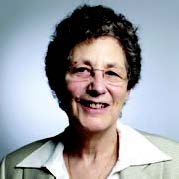 One of Openhouse’s most important goals is to build and strengthen community connections for LGBT older adults and seniors. When such individuals experience mental distress and are not able to access services, they are often unable to participate in, and contribute to, their community. The Emotional Support program at Openhouse helps seniors to stay engaged and connected to LGBT life by providing a bridge both to health and wellness resources and services at Openhouse, and to mental heath services in the larger community.
One of Openhouse’s most important goals is to build and strengthen community connections for LGBT older adults and seniors. When such individuals experience mental distress and are not able to access services, they are often unable to participate in, and contribute to, their community. The Emotional Support program at Openhouse helps seniors to stay engaged and connected to LGBT life by providing a bridge both to health and wellness resources and services at Openhouse, and to mental heath services in the larger community.
In addition to the general challenges and usual stressors that older adults face—such as age-related health issues, physical changes, life transitions and losses—there are specific issues and concerns that confront LGBT older adults:
Studies have reported that, for LGBT older adults and seniors, concern about encountering discrimination by mental health workers and diminished support networks are significant barriers to accessing mental health service. Yet we know that the huge losses and experiences of living through the AIDS crisis and decades of discrimination can leave a person with issues of mental stress and long-term grief and trauma. Further, certain mental health issues, if left untreated, can and do become more challenging in later life. Finally, diminished support networks leave LGBT older adults and seniors more vulnerable to becoming isolated and less connected to community.
Openhouse works to directly address these unique issues by providing a supportive bridge to resources and services. There are several ways that the Emotional Support Program addresses the mental health needs of LGBT older adults. First, by providing short-term emotional support for community members who are dealing with a specific stressor or attempting to address a challenge they are facing. Emotional support consists of regular weekly one-on-one sessions where the community member has a chance to explore and express challenges and difficulties, be heard, and identify ways that they can make positive changes. Perhaps an individual is struggling with the emotions of being retired and determining next steps in their life. A community member may have recently experienced a loss and finds it difficult to deal with daily life. Often these are individuals who have internal resources and good coping skills but could use some extra support to get through a difficult period in their lives.
Short-term individual support is provided to these individuals, as well as referrals for classes, support groups, and community engagement programs offered at Openhouse, or resources available elsewhere that can help them get through a difficult challenge. This short-term support is often enough, but sometimes work with these people uncovers more significant issues that they might wish to address. In this case, referrals are provided to mental health service agencies and to providers, such as psychotherapists and psychiatrists.
Second, some LGBT older adults realize that they have a need for mental health services, but understandably may feel overwhelmed about how and where to access these services. Short-term emotional sup-port can provide a space for community members to express their experiences and identify how they would best like to move forward. Openhouse staff then work with the individuals to identify referrals that the person feels would be most helpful. This will often include referrals for long-term mental health services, and part of the work includes help in navigating the complex maze of choices regarding health insurance, types of providers and services, etc.
Openhouse utilizes referrals to agencies that specifically provide services to the LGBT community, such as Queer Life Space, Lyon-Martin Health Services, and Alliance Health Project, and to mental health practitioners listed with Gaylesta. It is, however, a constant challenge to identify appropriate low fee/sliding scale or Medicare providers. There are too few low fee LGBT senior competent and affirming mental health services and providers now, and this is a concern going forward.
Finally, mental health and well-being are closely linked to other aspects of an individual’s life. Housing issues, health concerns, mobility difficulties and other challenges have a negative impact on a person’s mental health. In addition to short-term support, linkages may be offered to case management, and information and referral services are also available at Openhouse to provide community members with resources that will improve the overall quality of their lives.
Accessing mental health services as an LGBT older adult can be a daunting task, yet the need is ever-present and growing. Openhouse’s Emotional Support Program works to link indi-viduals to available services and programs. At Openhouse, we are concerned about the whole person. The ultimate goal of this work is to provide support that allows LGBT older adults to remain active and engaged in their community.
Greg Bodin, MS, LMFT, is an Emotional Support Specialist at Openhouse. He also has a psychotherapy practice in San Francisco. For more information, please visit www.gregbodin.com
SF Suicide Prevention Hotline (415) 781-0500
Institute on Aging Friendship Line (415) 752-3778
 Dr. Marcy Adelman oversees the Aging in Community column. For her summary
Dr. Marcy Adelman oversees the Aging in Community column. For her summary
of current LGBT senior challenges and opportunities, please go to: sfbaytimes.com/challenges-and-opportunties
Recent Comments